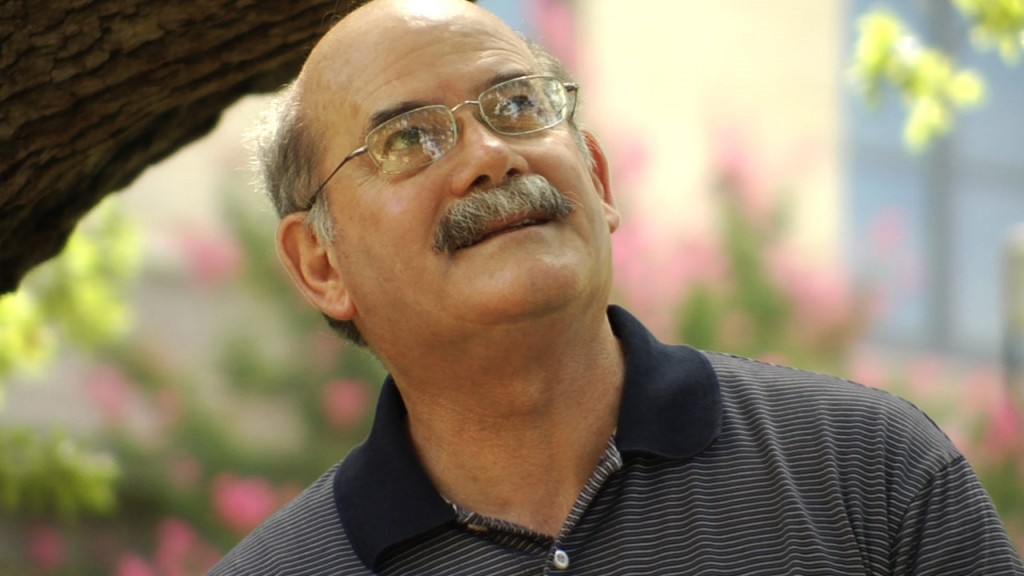
As recently as last year, the Texas State Board of Education had the power to rewrite history. The Revisionaries (airing Jan. 28 on Independent Lens) captures the scope of the board’s reign.
In the documentary’s intro, ABC News reporter Dan Harris interviews former board chair Don McLeroy in 2010. “You have been quoted as saying that the amount of power you have at times boggles your mind.” McLeroy responds, “Well, I did say that. I wished I hadn’t have said that, but I did say that because it is pretty influential.”
The “pretty influential” board shoehorned ideas into national textbooks that changed the way we teach science and social studies, as The Revisionaries shows. California and Texas are the two states with the most textbook-purchasing muscle because of the size of their student enrollments — 6.2 million and 5 million, respectively. In 2009, the Texas board required that textbooks ask students to consider whether gaps in the fossil record and the complexity of the human cell can be explained by evolution. Next was the social studies year, when the board defined America not as a democracy but a “constitutional republic” and replaced capitalism with “free-enterprise system.”
Much has changed since then. In 2011, the Texas Legislature shifted authority to order textbooks from the state to individual school districts with Senate Bill 6. The law deprived the board of its final say-so. Now, school districts have control over how they spend their almost $800 million on learning materials.
“It’s pretty clear that it reduces our authority in the sense that we’re not the only game in town,” board member Michael Soto, D-San Antonio told the Austin American-Statesman.
Filmmaker Scott Thurman describes it this way: Before, “the textbook publishers had to meet 100 percent of the TEKS [Texas Essential Knowledge and Skills standards]. In The Revisionaries, I follow the process of making those standards. Now, they only have to meet 50 percent of the standards…Textbook publishers have a little more wiggle room.”
He speculates that SB6 was passed because of the controversy the board raised in 2009 and 2010. “According to moderate members of the board, the far right didn’t like this at all. They wanted complete control. They wanted to lock in those standards and not allow textbook publishers to work around it.”
In the meantime, Thurman has kept in touch with the three main subjects in his film: Kathy Miller of the Texas Freedom Network, Southern Methodist University anthropology professor Ron Wetherington, and former board member Don McLeroy. The filmmaker and three film subjects will host a Reddit “Ask Me Anything” during The Revisionaries broadcast 8 p.m. CST Monday January 28.
Thurman chats with McLeroy on the phone “about once a week,” he said. “Don is a great, jovial man whom I respect in a way different from the people I’m politically aligned with, like Kathy. Don is no longer on the state board of education, but he follows state education policy very closely. He remains a dentist.”
Thurman has also stayed on top of education policy. His latest project follows the Texas Legislature and the lack of funding for public schools, in part because of tax incentives given to charter schools, he said.
As for the board of education, Thurman has been pleased with the balanced political makeup of the newly elected members. When The Revisionaries was filmed, the board was made up of seven far-right Christian conservatives, five Democrats, and three moderates. When “the seven far right could get one of these three moderates, they were able to pass a lot that way,” Thurman said. The November 2012 elections have instated a new balance: five far-right Republicans, five moderates, and five Democrats.
“When there’s an outrageous attempt in science to water down evolution and place doubt in scientific credibility, it raised attention enough for people to get out and vote. Now we’re looking at a vote that’s more split. It’s all in the voters’ hands.
“People need to understand how important these lower bodies of government are. A lot of people don’t take the time to vote on these elections, but they need to. They’re important. I would just like to see the board less politicized and [consist of] people with experience in education that have knowledge in a particular area and can listen to the experts rather than stand up to the experts. I think that’s a path to a better education for our kids.”
Since the Texas controversy, arguments over evolution have bubbled up in other states. Activists are passionately battling the Louisiana Science Education Act, which allows teachers to bring in their own materials to discuss hot-button topics such as evolution and climate change. Nineteen-year-old Zack Kopplin has drafted a letter arguing against the bill with the signatures of 78 Nobel Laureates.
The Texas Board of Education has lost much of its power, but many of the marks the board made on the nation’s textbooks are permanent. With so much muddied language, the textbooks lack a clear sense of narrative, Gail Collins wrote in the New York Review of Books. “Texas has never managed to get evolution out of American science textbooks,” she wrote. “It’s been far more successful in helping to make evolution—and history, and everything else—seem boring.”
